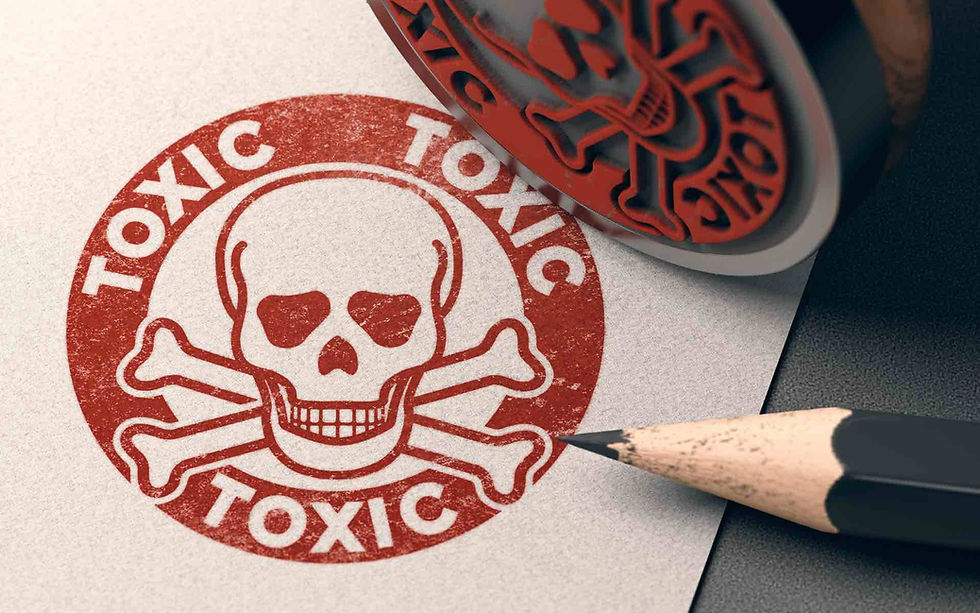How Conflict Avoidance Is Holding You Back at Work
- Kelly Judd
- Jun 6, 2024
- 3 min read
In the workplace, conflict is often seen as something to be avoided at all costs. Many of us have been conditioned to believe that promoting a harmonious, agreeable environment is the key to professional success. We fear that expressing disagreement or challenging the status quo will mark us as difficult, uncooperative, or even threatening.
However, the truth is that conflict avoidance can actually be a major hindrance to your career growth and the overall success of your organization. By constantly sidestepping tensions and biting your tongue, you may be missing out on crucial opportunities to innovate, problem-solve, and demonstrate your value.
The Risks of Conflict Avoidance
Stifled Creativity and Innovation
When everyone in a team is focused on maintaining a superficial peace, there's little room for the kinds of rigorous debate and idea exchange that spark innovation. If you're constantly holding back your thoughts and opinions for fear of rocking the boat, you're depriving your team of your unique perspectives and innovative solutions.
In fact, research has shown that the most effective teams are those in which members feel psychologically safe to disagree with one another and challenge each other's ideas. This kind of constructive conflict allows for a diversity of viewpoints, more robust problem-solving, and ultimately, better outcomes.
Missed Opportunities for Growth
Conflict avoidance can also stunt your personal and professional growth. If you're always deferring to others' opinions or volunteering for tasks that don't challenge you, you may find yourself stagnating in your role.
Moreover, by not speaking up about your goals, needs, and aspirations, you risk being overlooked for promotions, exciting projects, or professional development opportunities. Managers aren't mind-readers, and if you don't advocate for yourself, they may assume you're content with the status quo.
Accumulated Resentment and Burnout
When conflicts go unaddressed, they don't disappear—they fester. That minor irritation with a colleague's work style or a project's direction can slowly build into deep-seated resentment.
Over time, this unspoken tension can lead to a toxic work environment, characterized by passive aggression, backstabbing, and a general lack of trust and collaboration. This kind of atmosphere not only makes going to work a miserable experience, but it also significantly hinders productivity and performance.
Moreover, constantly suppressing your true thoughts and feelings in an attempt to keep the peace is emotionally exhausting. It can lead to stress, anxiety, and eventual burnout, taking a significant toll on your mental and physical health.
Enabling of Problematic Behavior
In some cases, conflict avoidance can allow problematic behavior to go unchecked. If you're reluctant to approach a colleague about the impacts of their chronic lateness, sloppy work, or inappropriate comments, you're effectively enabling that behavior to continue.
This not only affects your own work experience, but it can also have ripple effects on the entire team's morale and productivity. By not speaking up, you're signaling that such behavior is acceptable, and you may be inadvertently contributing to a culture of low accountability.
Embracing Healthy Conflict
So, what's the alternative to conflict avoidance? Embracing healthy, constructive conflict.
This doesn't mean picking fights or being confrontational for the sake of it. Rather, it's about learning to express your thoughts, opinions, and concerns in a way that's respectful, solution-oriented, and focused on the greater good of the team and the organization.
Here are some strategies for engaging in healthy conflict at work:
1. Reframe conflict as an opportunity for growth and learning. Approach disagreements with curiosity rather than defensiveness.
2. Focus on issues, not personalities. Critique ideas, not people, and avoid making assumptions about others' intentions.
3. Listen actively and seek to understand others' perspectives before pushing your own agenda.
4. Use "I" statements to express your thoughts and feelings, rather than making accusations or generalizations.
5. Look for win-win solutions that address everyone's concerns. Be open to compromise and collaboration.
6. Choose your battles wisely. Not every disagreement is worth pursuing. Focus on issues that have a significant impact on your work or the team's success.
7. Seek feedback and support from a trusted mentor or HR representative if you're unsure how to handle a particular conflict.
Remember, the goal is not to eliminate conflict altogether, but to manage it in a way that promotes growth, innovation, and healthy team dynamics.

Hi, I'm Kelly. 👋 I help you make hard decisions and do hard things. Like you, I spent decades putting others' needs before my own. After almost 20 years of leadership roles and a lifetime’s worth of plot twists in my personal life, I made the empowering decision to seek greater meaning and purpose in my work, helping others to reconnect with their authentic selves and discover the joy, peace, and clarity that comes with finally identifying and prioritizing your own needs.
_edite.png)



Comments